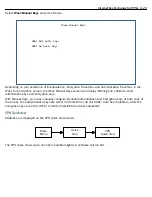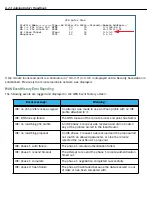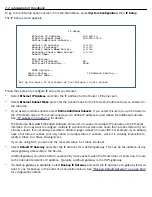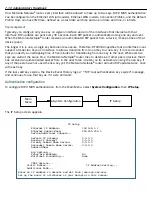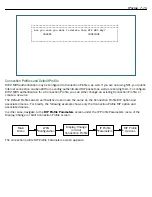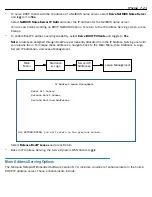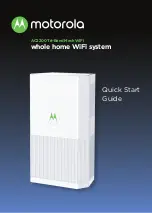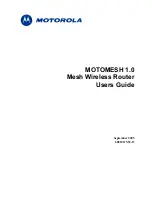
IP Setup 7-9
•
Up to 32 static routes can be created, but one is always reser ved for the default gateway, which is
configured using either Easy Setup or the IP Setup screen in system configuration.
Modifying a static route
To modify a static route, in the Static Routes screen select
Display/Change Static Route
to display a table of
static routes.
Select a static route from the table and go to the Change Static Route screen. The parameters in this screen
are the same as the ones in the Add Static Route screen (see
“Adding a static route” on page 7-7
).
Deleting a static route
To delete a static route, in the Static Routes screen select
Delete Static Route
to display a table of static
routes. Select a static route from the table and press Return to delete it. To exit the table without deleting the
selected static route, press Escape.
Rules of static route installation
The Motorola Netopia® Embedded Software Version 8.7.4 applies cer tain rules before installing enabled static
routes in the IP routing table. An enabled static route will not be installed in the IP routing table if any of the
following conditions are true:
•
The static route’s
Next Gateway IP Address
matches an IP address in the range of IP addresses being
distributed by DHCP.
•
The static route’s
Next Gateway IP Address
is determined to be unreachable by the Router.
•
The static route’s route information conflicts with a connection profile’s route information.
•
The connection profile associated with the static route has a disabled dial-on-demand setting, and there is
no current connection using that connection profile.
A static route that is already installed in the IP routing table will be removed if any of the conditions listed above
become true for that static route. However, an enabled static route is automatically reinstalled once the
conditions listed above are no longer true for that static route.
RIP Options
Motorola Netopia® Embedded Software Version 8.7.4 suppor ts RIP-2 MD5 Authentication (RFC2082 Routing
Internet Protocol Version 2, Message Digest 5). The purpose of MD5 authentication is to provide an additional
level of confidence that a RIP packet received was generated by a reliable source. In other words, MD5
authentication provides an enhanced level of security that information that your PC receives does not originate
from a malicious source posing as par t of your network.
Overview
All par ticipants in an authenticated RIP environment on a network must share an identifier key. There is no key
exchange protocol like IKE, so all keys must be manually entered by an administrator.
RIP-2 MD5 Authentication requires that an inter face configured to receive authenticated packets ignore unau-
thenticated packets or packets authenticated with an invalid key. An inter face that is not configured for
receiving authenticated packets ignores authenticated ones.
Summary of Contents for Netopia Embedded Software
Page 10: ...x Administrator s Handbook ...
Page 16: ...1 6 Administrator s Handbook ...
Page 44: ...2 28 Administrator s Handbook ...
Page 108: ...3 64 Administrator s Handbook ...
Page 176: ...5 34 Administrator s Handbook ...
Page 202: ...6 26 Administrator s Handbook ...
Page 244: ...7 42 Administrator s Handbook ...
Page 340: ...Index 6 ...



